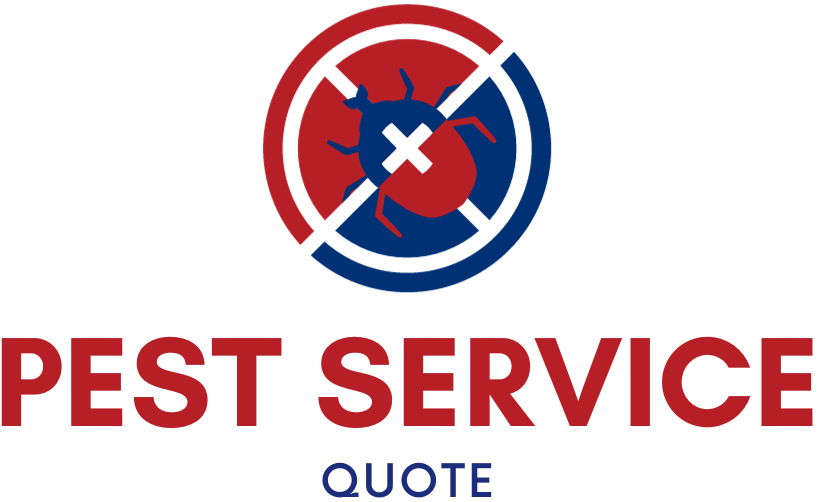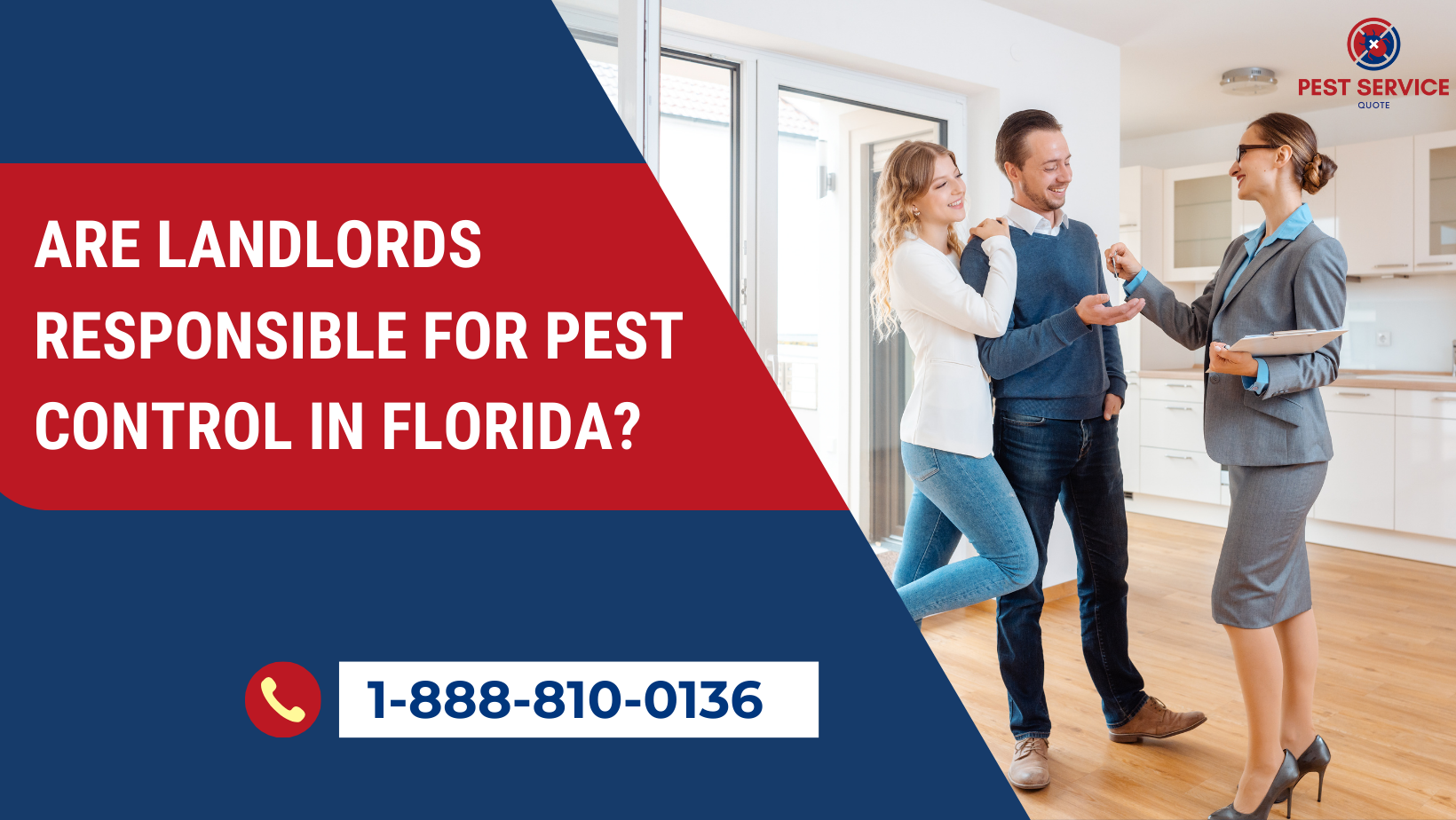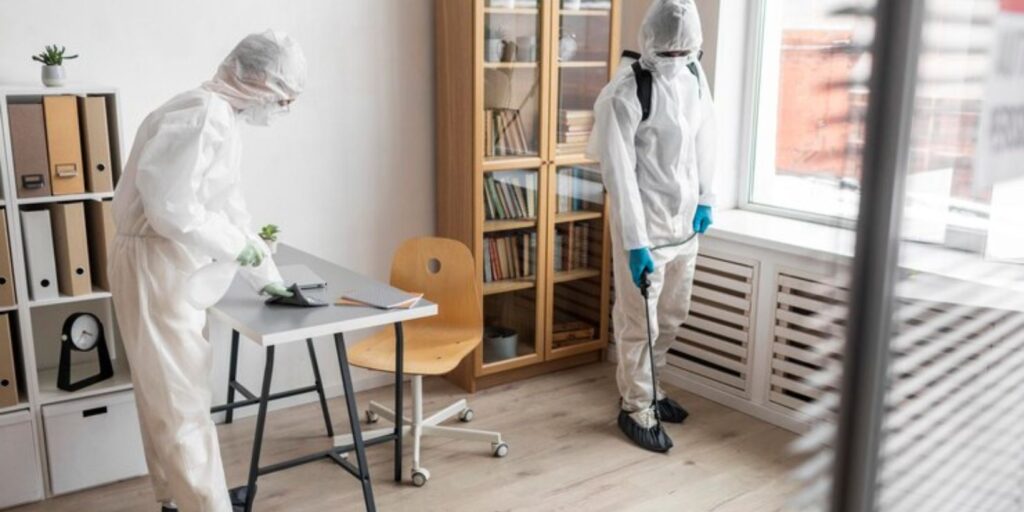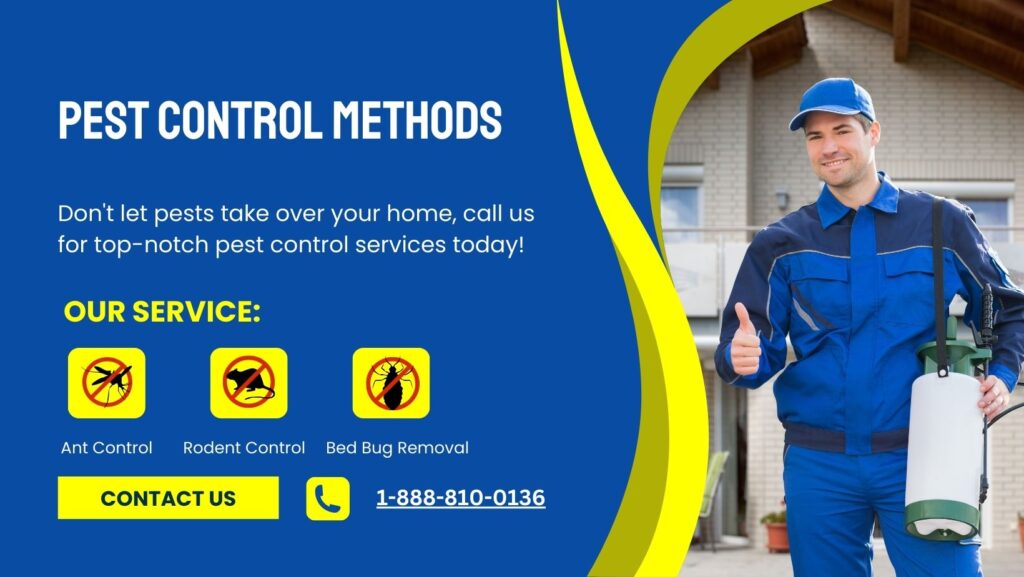Florida’s warm and humid climate creates a perfect environment for pests to thrive. From ants and roaches to rodents and termites, the variety and volume of pests can pose serious challenges for both tenants and landlords. Understanding who is responsible for pest control in rental properties is crucial for maintaining a safe and habitable living environment. This guide will explore the responsibilities of landlords regarding pest control in Florida, providing clarity on what actions must be taken and when.
Pest Control in Florida: An Overview
Florida’s landlord-tenant laws address the issue of pest control and outline the responsibilities of both parties. According to Florida Statute 83.51, landlords are required to maintain the rental property in a condition that is fit for human habitation. This includes ensuring that the property is free from pests.
Common Pests in Florida
The state’s subtropical climate is a haven for various pests, including:
- Ants: Multiple species, such as fire ants, carpenter ants, and ghost ants, are common in Florida.
- Roaches: The warm and humid weather attracts American cockroaches, German cockroaches, and Asian cockroaches.
- Rodents: Rats and mice can be a significant issue, especially during cooler months when they seek shelter indoors.
- Termites: Both subterranean and drywood termites can cause extensive damage to structures.
Landlord Responsibilities for Pest Control
Initial Move-In
Landlords are typically responsible for ensuring that rental units are pest-free at the beginning of a tenancy. This means that before new tenants move in, landlords should take proactive measures to inspect and treat the property for pests if necessary.
Ongoing Pest Control
The responsibility for ongoing Pest Control in Florida can vary based on the terms of the lease agreement. However, landlords are generally expected to address any pest infestations that arise due to structural issues or the property’s condition. Regular maintenance and prompt repair of structural problems help prevent pest infestations.
Emergency Situations
In cases of severe infestations that pose immediate health risks, landlords must act quickly to eliminate the problem. Delayed responses can lead to worsening infestations and potential legal issues.
Tenant Responsibilities for Pest Control
- Cleanliness and Hygiene
Tenants play a critical role in preventing pest infestations by maintaining cleanliness and proper hygiene within the rental unit. This includes regular cleaning, proper food storage, and managing waste effectively.
- Reporting Issues
Tenants should promptly report any signs of pest activity to the landlord or property manager. Early reporting allows for swift action, preventing minor issues from escalating into major infestations.
- DIY Pest Control
While tenants can take some DIY pest control measures, they should avoid using methods that could damage the property or create health hazards. Simple steps like sealing food containers, keeping countertops clean, and using store-bought pest repellents can help, but professional intervention may be necessary for significant infestations.
Pest Control Services in Florida
Hiring a professional pest control company is often the most effective way to manage pest issues. These companies have the expertise, tools, and products to handle various pests safely and efficiently. Common services provided by pest control companies in Florida include:
- Inspections: Thorough assessments to identify pest issues and potential entry points.
- Treatment Plans: Customized plans to address current infestations and prevent future ones.
- Maintenance Programs: Regular visits and treatments to keep pests under control year-round.
Choosing the Right Pest Control Service
When selecting a pest control service in Florida, consider the following factors:
- Licensing and Certification: Ensure the company is licensed and certified to operate in Florida.
- Experience and Expertise: Look for companies with experience handling the specific pests common in your area.
- Reputation: Read reviews and ask for referrals to gauge the company’s reputation.
- Eco-Friendly Options: Consider companies that offer eco-friendly and safe pest control methods.
Conclusion
Understanding the responsibilities of landlords and tenants regarding pest control is essential for maintaining a healthy and comfortable living environment in Florida. While landlords are primarily responsible for ensuring the property is pest-free at the start of the tenancy and addressing structural issues, tenants must maintain cleanliness and promptly report any pest activity.
By working together and utilizing professional pest control in Florida when necessary, both parties can effectively manage and prevent pest infestations. If you’re a landlord or tenant facing pest issues, taking proactive steps and seeking professional assistance will help ensure a pest-free living space.



